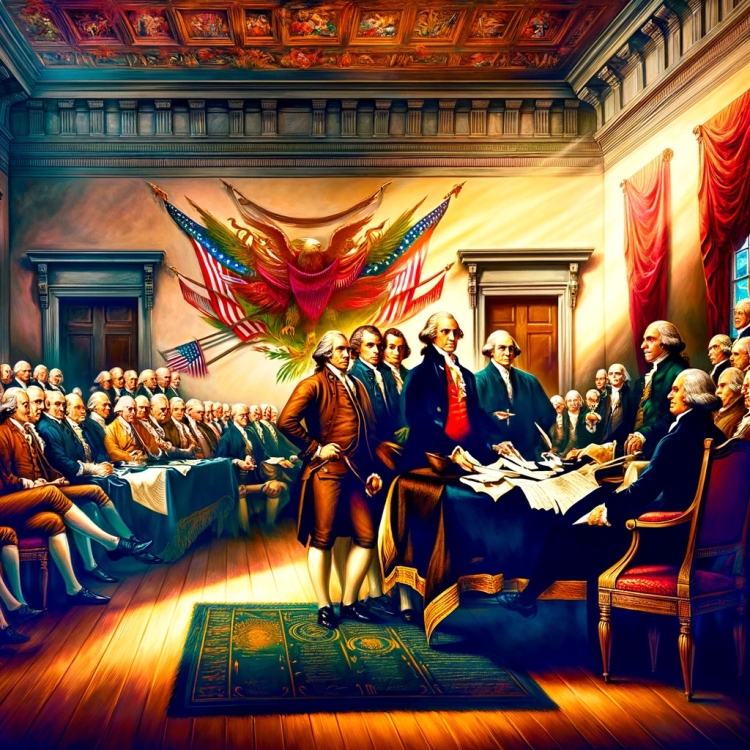Founding of the United States A Tale of Democracy Freedom and Justice
The story of the Founding of the United States is a remarkable journey of courage, the pursuit of freedom, and the establishment of a nation built on the principles of democracy, freedom, and justice. This narrative explores the early settlements, the rising tensions leading to the Revolutionary War, the triumph of independence, and the creation of a constitutional democracy. It highlights the challenges faced by the early settlers, the unifying struggle for independence, and the visionary leaders who laid the groundwork for a nation that cherishes liberty and equality. Through this journey, the United States emerged as a beacon of hope and a model for democratic governance around the world.

The founding story of the United States is filled with deep historical roots, ideals, and struggles, occupying a unique place in world history. This tale not only narrates the birth of a nation but also represents a universal symbol of the pursuit of democracy, freedom, and justice.
The Settlement of the Colonies and a New World
The early 17th century marked the beginning of a significant wave of migration from Europe to America. English settlers, seeking religious freedom or in pursuit of economic opportunities, arrived in the New World. Jamestown, Virginia, established in 1607, was the first permanent English settlement, followed by the Puritan colony in Plymouth, Massachusetts. These early settlers faced challenges with indigenous peoples, harsh climate conditions, and the difficulties of building a new society.
Rising Tensions Before Independence
By the mid-18th century, Britain's heavy taxation policies and legal restrictions had led to widespread dissatisfaction among the colonies. The slogan "No taxation without representation" became a widespread expression of the colonies' resistance spirit. Events like the 1770 Boston Massacre and the 1773 Boston Tea Party escalated tensions between the colonies and Britain, igniting the struggle for independence.
The Revolutionary War and the Birth of a New Nation
The American Revolutionary War, which began in 1775 and lasted for eight years, concluded with the colonies' victory over Britain. George Washington's military leadership and France's support were pivotal in changing the war's outcome. The 1781 Battle of Yorktown resulted in Britain's surrender, and the 1783 Treaty of Paris officially recognized the independence of the United States.
The Adoption of the Constitution and the Building of Democracy
The post-independence period witnessed significant debates on how the new nation should be governed. The adoption of the U.S. Constitution in 1787 established a federal government, becoming one of the most important political documents in history. This constitution adopted the principle of separation of powers, creating legislative, executive, and judicial branches. Additionally, the Bill of Rights, ratified in 1791, guaranteed fundamental rights and freedoms for Americans.
Cultural and Economic Developments
In its founding years, the United States became a diverse society spread across vast lands. Industrialization and commerce dominated the North, while agriculture was predominant in the South. This period also saw significant advancements in American literature, art, and science. Figures such as Benjamin Franklin, Thomas Jefferson, and Alexander Hamilton made substantial contributions in both politics and in the fields of science and philosophy.
Conclusion
The founding story of the United States is a powerful example that people can unite around the ideals of freedom, equality, and justice. This tale has been an inspiration for the spread of democracy worldwide, and American history serves as a reminder of the continuous pursuit of these ideals. The founding of America symbolizes not just the birth of a nation but also the emergence of modern democratic thought.
What's Your Reaction?




















